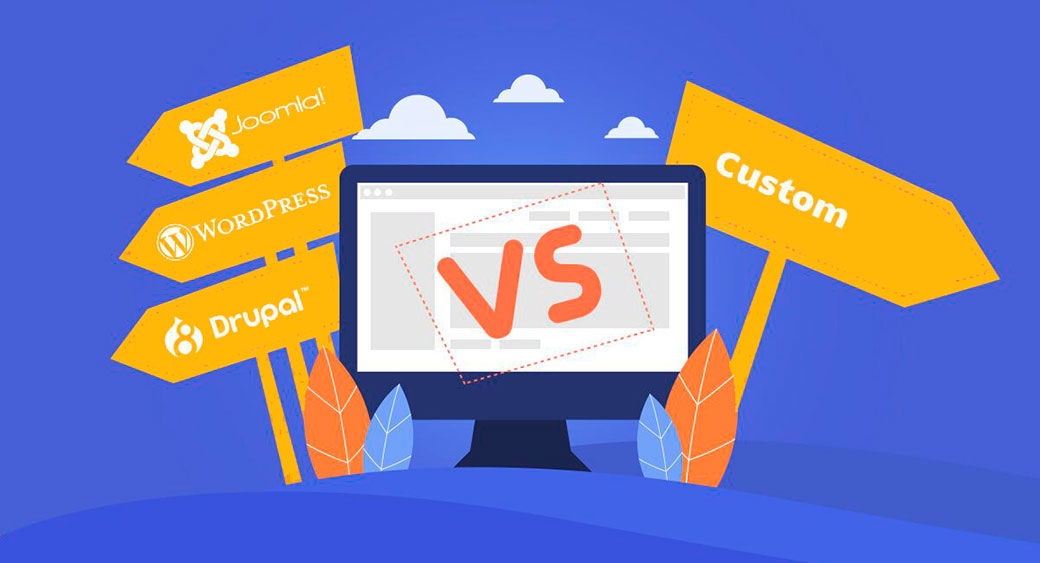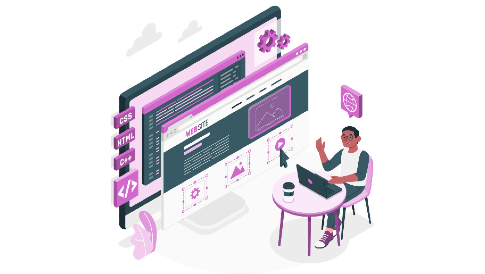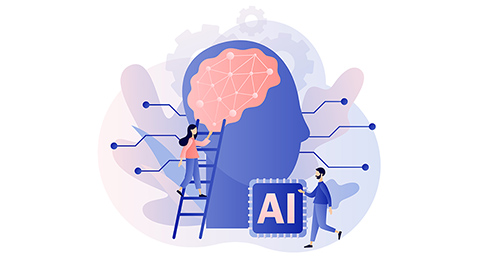CMS vs Custom Development – What to Choose?
Choosing between CMS vs custom development is the first decision that you will need to make after getting an idea for your website. Content Management Systems make the process of creating a site significantly easier and often cheaper than it would be to build it from scratch. It also frequently takes less time to deploy pages done on CMS platforms. At the same time, a custom-made site is going to be more stable, secure, and visually unique than the one done with a CMS.

To make the best choice, you need to consider your system and design requirements, as well as your business needs, marketing strategies, and target audience.
What’s the Difference Between CMS and Custom Development?
A CMS is a piece of pre-configured software that already includes various functionalities necessary to create and run a website. These platforms come bundled together with multiple themes and plugins to make personalization easier and to reduce the time needed to adjust the platform to your specific needs. Overall, a CMS helps people with little technological background to create and deploy beautiful and functional sites quickly.
Building a website from scratch, on the other hand, is a time-consuming and complicated process. To do this, developers use open-source libraries and frameworks while writing the majority of the code specifically for each customer. Building a website from scratch allows you to have a more unique, secure, and reliable system in the majority of cases. Furthermore, depending on your requirements, custom development may be the only viable option to account for your system’s complexity. To create a website from scratch, you need to have extensive expertise in web design and programming to write the backend logic. Alternatively, you can contact a software development company to create the site for you (read more here).
Price
Custom development is more expensive than using a CMS. Despite having access to numerous libraries, frameworks, and reusable code pieces, developers will build the architecture from scratch, and that will stretch your budget more than a less flexible but already functional CMS can. If the price is the deciding factor for your choice, you should prepare to opt for a CMS. However, it always makes sense to contact a software development company and discuss your idea to get the estimates. Most of the time, it can be not easy to accurately assess the cost of your project without having any experience in the field.

Development Time
CMS systems win in terms of development time since they are already pre-configured. Depending on the functionality you need, you may require a day to several weeks to customize the site. The abundance of available themes and plugins effectively removes the necessity to spend months coding and integrating specific features. A CMS is a way to go if you need a prototype of the site quickly or if you want to get some feedback on your project before investing more resources in custom development.
Performance and User Experience
Overall, a website developed from scratch will perform better than its CMS counterpart. CMS platforms show similar results on small projects without substantial user traffic and complicated features. However, as your business progresses, you may discover the need for better performance, design, and efficiency to improve user experience.

In comparison with custom-built websites, CMS platforms also sometimes perform worse due to the abundance of features packed in them, regardless of what functionality you choose to use.
CMS vs Custom Development Scalability
All CMS systems come packed with standard functionalities. It makes them incredibly useful in the early stages since you can use pre-coded elements instead of creating them from scratch. But this perk of CMS platforms quickly becomes their pitfall when users need to implement more complex features, improve the site’s performance, or expand the site’s availability. As your business grows, your website will have to keep pace, and CMS platforms are not suitable for creating genuinely scalable solutions.

Custom-made sites are not bulletproof in terms of scalability; they are as quickly susceptible to performing poorly and being a nightmare to update or modify. Nevertheless, high-quality custom solutions will turn out to be generally more comfortable and cheaper to improve when the need arises.
Security
In a standard CMS, the responsibility for providing the necessary security falls on the platform’s provider. On the one hand, it’s convenient, since you don’t need to invest resources into developing and maintaining the site’s security. On the other hand, the level of protection frequently leaves much to be desired, primarily because large CMS platforms with standard security protocols become easy targets. Also, your CMS will rely on various plugins provided by third-party companies, all of which may come with their security risks.

Custom development pays special attention to security in each separate case, which helps ensure your website has sufficient and up-to-date protection at all times.
CMS vs Custom Development – What to Choose?
Ultimately, custom development will always surpass using a CMS. Regardless of how small your website is and what purpose it serves, having a page built precisely to your specifications will pay off in a more beautiful design and seamless functioning in the vast majority of cases. Custom-made websites are also more secure and scalable. They serve not only as a place for you to showcase your products but as a part of your brand. If your budget allows it, enlisting a professional team of developers to build you a site from scratch is likely to bring more benefits than spending time tweaking a CMS.
A CMS, however, can be incredibly useful to startups, artists, bloggers, and other creators who do not require exceptional uniqueness or functionality. If you’re planning to make a simple, beautiful, and cheap website, using a CMS is a good idea. Most platforms will provide a bunch of free themes for you to experiment with, so you can give it a go and determine whether you’re happy with the available design options. If your client base expands in the future, and you identify the need for a more scalable solution, you can always switch to custom development.




Leave a Reply